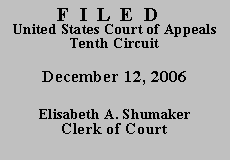

| ANTHONY C. KENNEY,
|
|
| v. | |
| NKC OF AMERICA; BETH GREEN, |
We construe pro se pleadings liberally. See French v. Adams Cty. Detention Ctr., 379 F.3d 1158, 1159 (10th Cir. 2004). Mr. Kenney, proceeding in forma pauperis, brought suit against NKC of America, Inc. in the United States District Court for the Northern District of Oklahoma. (The address for NKC stated in the complaint is in Memphis, Tennessee.) He alleged that NKC denied him a position as a combination welder and that this denial constituted racial discrimination in violation of Title VII of the Civil Rights Act of 1964, 42 U.S.C. §§ 2000e through 2000e-17. (In his appeal brief Mr. Kenney also seems to assert claims under the "Wagner Act" and the "Fair Labor Standards Act." We assume that he is referring to the National Labor Relations Act, 29 U.S.C. §§ 151169, (sometimes called the "Wagner Act," see Int'l Ass'n of Machinists v. BF Goodrich, 387 F.3d 1046, 1048 n.4 (9th Cir. 2004)), and the Fair Labor Standards Act of 1938, 29 U.S.C. §§ 201219. Neither claim was raised below, so we decline to consider them for the first time on appeal. See Utah Shared Access Alliance v. Carpenter, 463 F.3d 1125, 1134 n.3 (10th Cir. 2006).)
According to his complaint, Mr. Kenney had apparently taken a "Class A" welder test in an attempt to obtain the welding position, and was falsely told that he did not pass. He allegedly had already been a "Class A" certified welder for many years. After NKC denied him employment, Mr. Kenney filed a complaint with the Equal Employment Opportunity Commission (EEOC). On the EEOC complaint he indicated that Memphis, Tennessee, was his home and the location of NKC. The record contains no right-to-sue notice from the EEOC or any other information regarding the status of its investigation.
The venue provision of Title VII states in pertinent part:
Such an action may be brought in any judicial district in the State in which the unlawful employment practice is alleged to have been committed, in the judicial district in which the employment records relevant to such practice are maintained and administered, or in the judicial district in which the aggrieved person would have worked but for the alleged unlawful employment practice, but if the respondent is not found within any such district, such an action may be brought within the judicial district in which the respondent has his principal office.
42 U.S.C. § 2000e-5(f)(3). This specific venue provision, and not general venue provisions, applies to Title VII claims. See Pierce v. Shorty Small's of Branson, Inc., 137 F.3d 1190, 1191 (10th Cir. 1998). Sua sponte dismissal for improper venue is appropriate "when the defense is obvious from the face of the complaint and no further factual record is required to be developed." Trujillo v. Williams, 465 F.3d 1210, 1217 (10th Cir. 2006).
The allegations of the complaint suggest that Tennessee is the sole proper venue, and no allegation in the complaint would support venue in Oklahoma. Moreover, although the district court stated that "[t]he events giving rise to Plaintiff's claim occurred in Tennessee, and the Court doubts whether it could properly exercise jurisdiction over [NKC]," Mr. Kenney makes no effort on
appeal to suggest that he could establish proper venue in Oklahoma. Therefore, we AFFIRM the district court's dismissal.
ENTERED FOR THE COURT
Harris L Hartz
Circuit Judge
*.After examining the brief and appellate record, this panel has determined unanimously that oral argument would not materially assist the determination of this appeal. See Fed. R. App. P. 34(a)(2); 10th Cir. R. 34.1(G). The case is therefore ordered submitted without oral argument. This order and judgment is not binding precedent except under the doctrines of law of the case, res judicata, and collateral estoppel. It may be cited, however, for its persuasive value consistent with Fed. R. App. P. 32.1 and 10th Cir. R. 32.1.